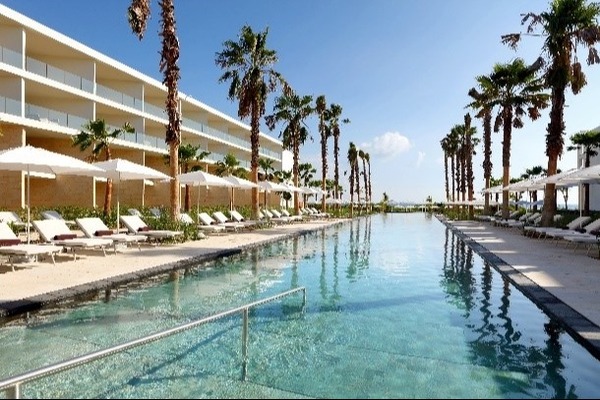Could new claims trends plague travel’s Covid recovery?
 Gary Noakes
Gary NoakesThanks to a firm stance from operators like Jet2holidays and Tui, fake compensation claims for mystery stomach bugs and other holiday “illnesses” have all but disappeared, while Covid-specific disruption and flight cancellations are a thing of the past.
But new legal threats are emerging at a time when tight capacity and soaring demand mean consumers are paying higher prices for their holidays, with inflated expectations to match. There are other factors to consider too, like the potential for increased attention from claims management companies (CMCs), while new types of litigation from areas such as medical tourism are evolving.
Some law firms are still dealing with issues from hotels being mothballed during Covid. Gareth Thomas, partner at law firm Kennedys, told Abta’s aviation seminar there had been an increase in claims from clients contracting legionnaires’ disease – a lung infection linked to improperly maintained showers or air conditioning – although he stressed this was “probably something limited to this year”.
Sarah Prager, a barrister at Deka Chambers, also expects issues at newly reopened hotels. “There are already legionnaires’ disease claims coming through,” she said. “We may also see an increase in quality complaints where hotels may not have reopened all their facilities or recruited staff to offer all services advertised in brochures.”
Expectations raised
Some travel lawyers expect a spike in claims this summer as the number of legal firms targeting travel rises, with “trip and slip” lawsuits replacing sickness claims. Thomas predicted caps on legal fees for motor claims introduced in 2018 meant more CMCs refocusing on travel. “Law firms are moving into the travel sector, whether it’s personal injury or regulatory stuff around airlines,” he said.
Prager disagreed: “I’m not one of those people; in accident claims, it’s necessary to prove a breach of local standards with expert evidence [so] they’re not very attractive to ‘pile ’em high, settle ’em quick’ firms because of significant costs involved, and those costs have to be front-loaded.
“Unless tour operators start settling claims without asking to see evidence of local standards – and I see no prospect of that happening – I don’t think we’ll see an explosion of claims of this nature.”
Travlaw senior partner Matt Gatenby pointed out any spike in claims will be accentuated by greater numbers of travellers this year. “I don’t think the nature of claims is going to be that different; it’s just we’ve not seen these things for two or three years,” he said. “People unable to take a holiday for the past couple of years are expecting a lot, plus consumers are even more aware of their rights.”
He predicts litigation resulting from higher consumer expectations. “Clients who paid £2,000-£3,000 for a family holiday pre-Covid will be paying £5,000-£6,000 now – they are likely to be demanding,” said Gatenby, adding this – combined with hotels struggling with large debts and recruitment problems – was a potential issue.
Operators are also grappling with a post-Covid recruitment hangover. Complaints that reach lawyers are often those unresolved by customer service teams, and with many still depleted, there may be trouble ahead.
“A lot of people were laid off and everything has gone into sales,” said Gatenby. “If in January someone said we need to ready the customer service team, there would have been a problem with recruitment but also it was probably still not the focus – all the effort went into sales. I want companies to be ready with the right people when queries start coming in.”
Medical tourism
So much for immediate concerns, but what about future legal perils? Gatenby believes the growing popularity of medical tourism will prompt some serious disputes now it is becoming mainstream. “Twenty years ago, fewer people were doing it and it was much higher end,” he said.
He described the Foreign Office warning on medical tourism to Turkey following 24 deaths since 2019 as “extraordinary”. “It’s a judgement call on the quality of service.”
Nevertheless, rising NHS waiting lists tempt many abroad for procedures, with operators showing an interest in the market. “If you’re a tour operator, it’s an easy add-on – surgery and a week to recover," added Gatenby.
"We’re seeing an uptick in claims, but also people asking if there’s a business opportunity – it’s people saying, ‘I’m already doing the travel’, or those doing the treatment asking if they should do the flights and accommodation."
Prager is another who believes medical tourism will be a new legal battleground. “No reputable tour operators offer medical tourism packages, but some disreputable ones do,” she said. “These, I am afraid, deserve all the claims they get.
“The problem for claimants is that these operators are often uninsured, so claimants also have to sue the foreign doctors. I would caution any operator against this area of the market without very carefully considering the potential consequences, and insuring themselves adequately.”
Any consumers thinking normal package regulations will protect them are in for a shock. Farina Azam, a partner at Fox Williams, explained the liability under the Package Travel Regulations (PTRs). She said spa treatments would fall into the category of tourist services under the PTRs, but added: “It would be a real stretch to put plastic surgery under that.
“The actual procedure is not a tourist service. You have a definition of what a package is and, in my opinion, a medical procedure does not fall within that.”
Sustainability spotlight
Another area – disability claims – will grow, aided by social media, Prager believes. “They haven’t yet really materialised in the UK, but in the US there has been a lot of publicity about how people with restricted mobility are treated on aircraft, with TikTok enabling them to show followers how difficult it can be. I think we’ll see some of that in the UK.”
Prager added “greenwashing” was another concern: “It’s another area I’ve been cautioning about for a while which finally seems to be coming to fruition. “There’s been a handful of claims in Europe, but in the UK, greenwashing is largely something the relevant authorities deal with, as it’s difficult for consumers to show loss.
"I predict the Advertising Standards Authority and Competition and Markets Authority will start to look at greenwashing more carefully – I think we can expect to see the results in the next few years.”
Gatenby also warned firms trading on their green credentials would be “under the microscope”, with the CMA “big on greenwashing”. “It’s a hard one to make out,” he said. “Where is the loss? I don’t see it as an immediate concern.” However, he advised business not to “overstate” their sustainability claims.
Data protection is another growing concern. “We’ve seen invoices sent to the wrong address giving your financial details and detailing when you’ll be out of the country. It’s going to be the next area for claims firms,” Gatenby predicted.
“There’s a fear about it being the next PPI, but I think if it was going to happen to that kind of extent, it would have happened already. The message here is to look after your data.”
Gary Noakes is TTG's senior contributor and analyst.
Have your say
Travel has been in the firing line before, and it will be again. It also has experience fighting off new frontiers for claims, and undoubtedly will do so again. But as new risks emerge, caution is the by-word for now – especially when it comes to making sustainability claims, promoting new product categories and working with increasingly large amounts of consumer data.
We'd love your thoughts on the current landscape, the new risks you are facing as travel sellers, and how you're adapting to the post-Covid landscape. Please do drop us a comment in the comments section below, or email feedback@ttgmedia.com.
Sign up for weekday travel news and analysis straight to your inbox

Gary Noakes
Supplier Directory
Find contacts for 260+ travel suppliers. Type name, company or destination.



















